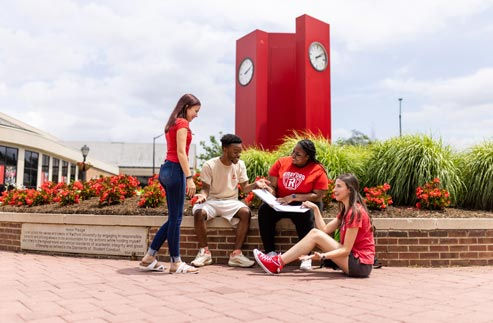Radford University
Highlander Success Center
- Advising, 540-831-2139
- Student Success and Retention, 540-831-2139
- Student Connection Programs, 540-831-5923

At the Radford University Highlander Success Center (HSC) in Radford and Roanoke, our students’ academic achievement, engagement, and belonging as a member of the campus community are number one! The HSC faculty and staff want to empower you to thrive as you take advantage of our intentional academic support services of Academic Advising and Student Success and Retention as well as keep you connected to important people on and off campus through Student Connection Programs. Our services will assist you in your personal and academic goals, and our faculty and staff will cheer you on as you work hard and achieve while following your individualized pathway to success.
We welcome you to Young Hall in Radford and the 5th floor in Roanoke, encourage you to maintain constant communication with our faculty and staff, and vow to connect you with resources throughout campus that will assist you as you navigate Radford University. In Radford, your academic advisors are located on the 3rd floor of Young Hall and are available Monday through Friday 8 a.m. – 5 p.m. Peer Coaches, the Student Connections Team, and the Retention Services Team are on the 4th floor of Young Hall. If you are in Roanoke, academic advisors and support are on the 5th floor of Carilion Community Hospital. We look forward to seeing you and supporting you throughout your journey at Radford University!
The HSC Mission
The Highlander Success Center brings together student success and support services to provide a comprehensive, integrated experience to meet the needs of Radford students. With continued reliance on case management approaches to supporting student success, the center embodies the university’s mission of empowering students from diverse backgrounds through transformative educational experiences.


